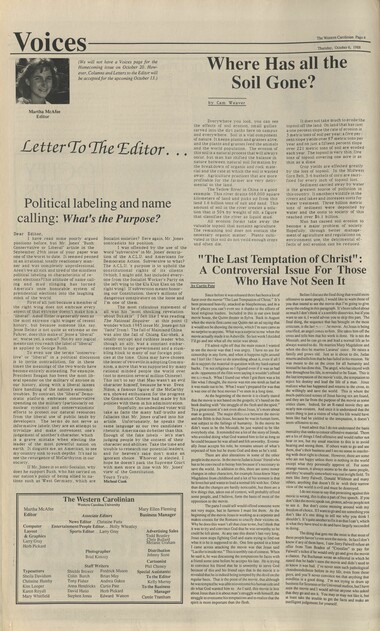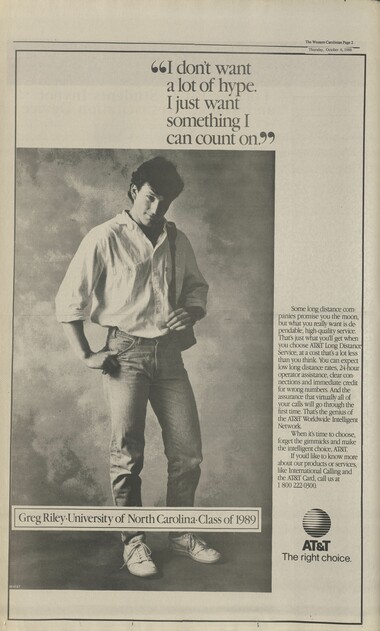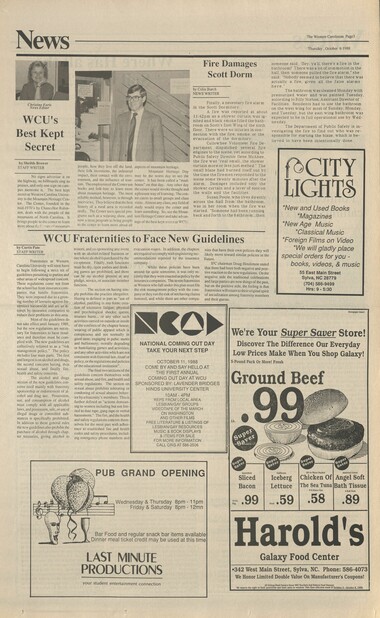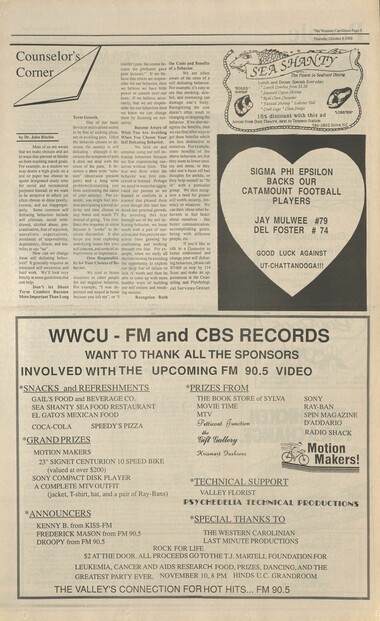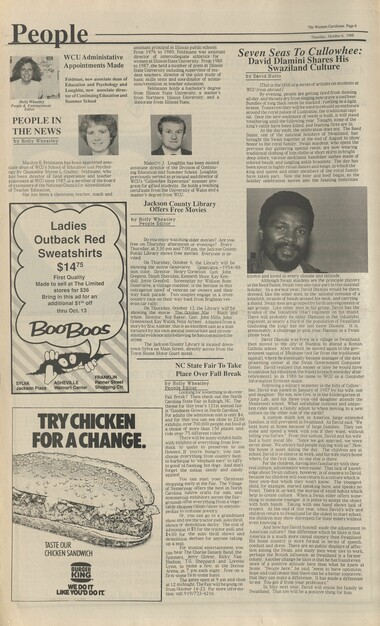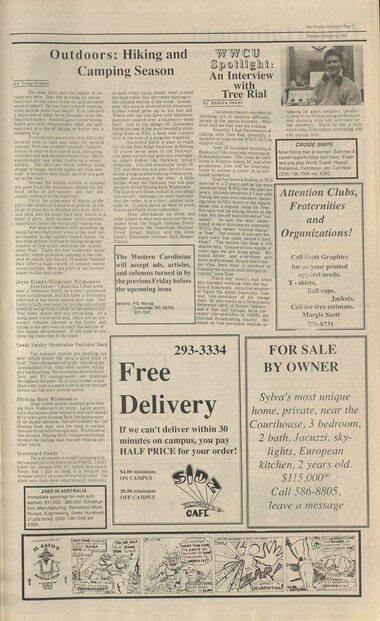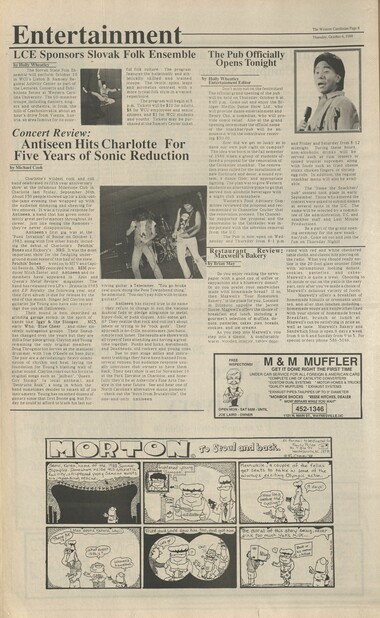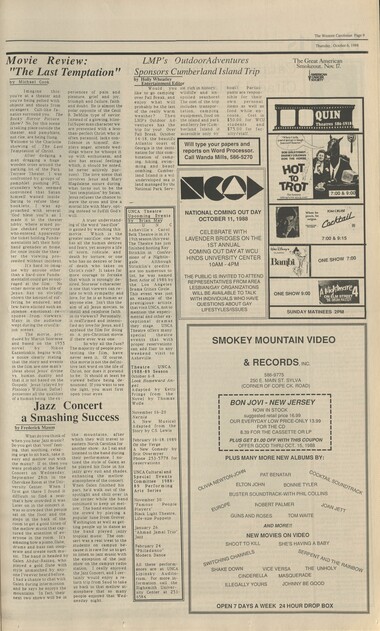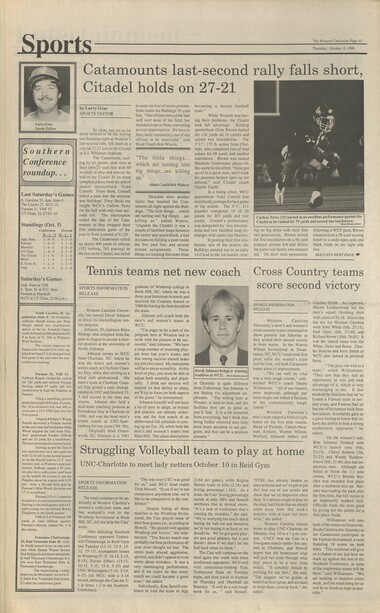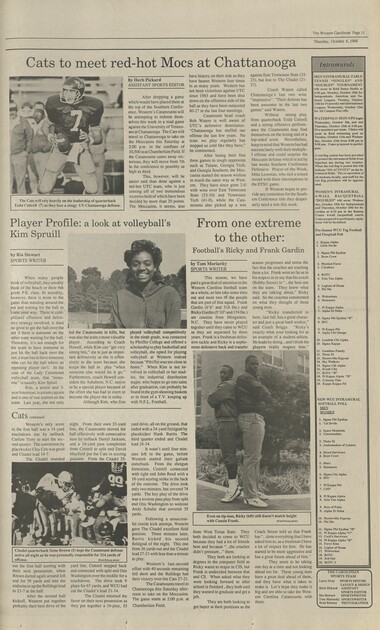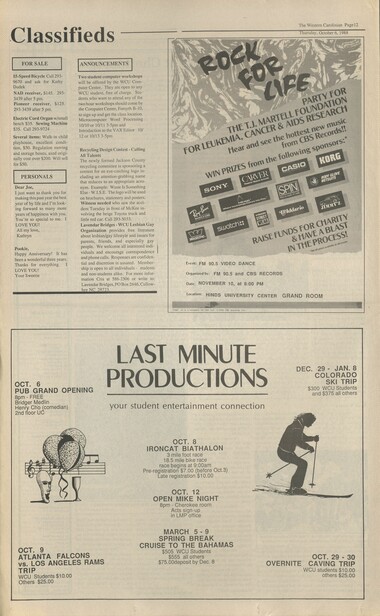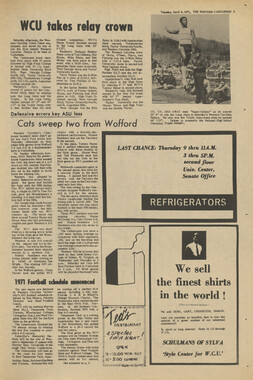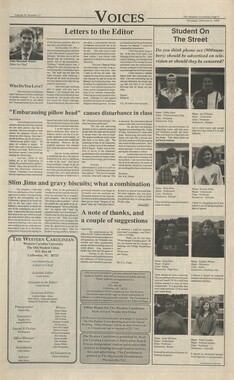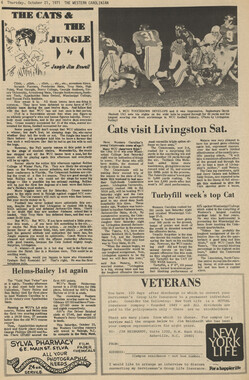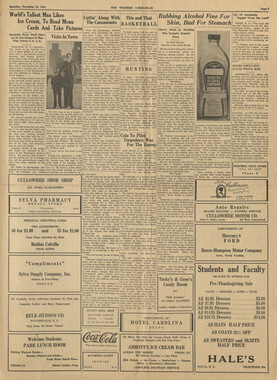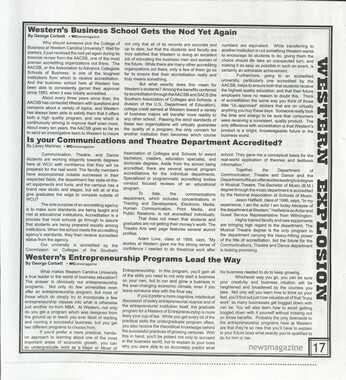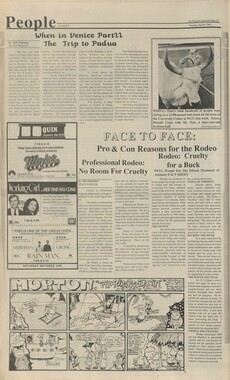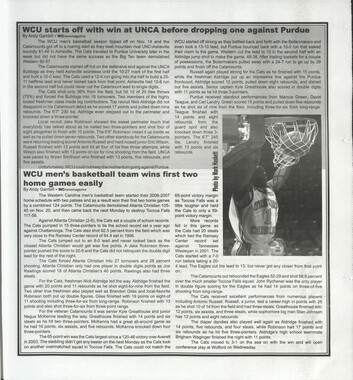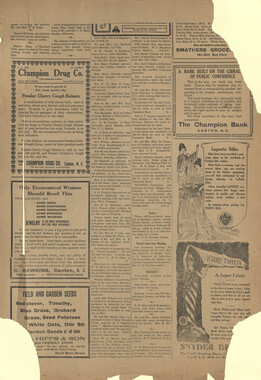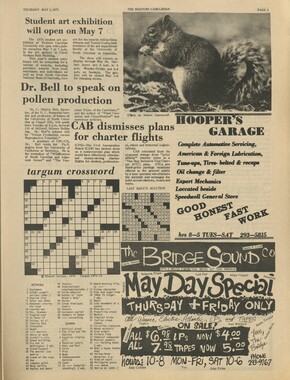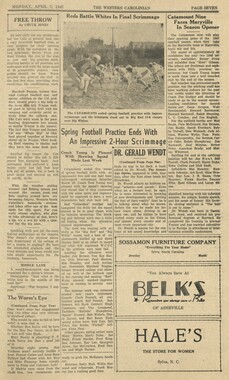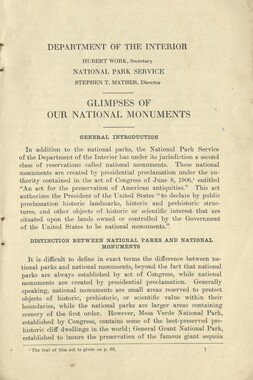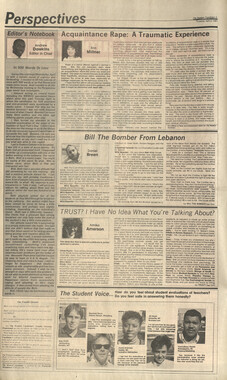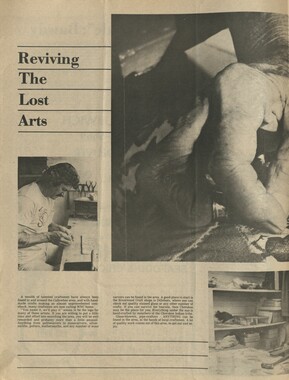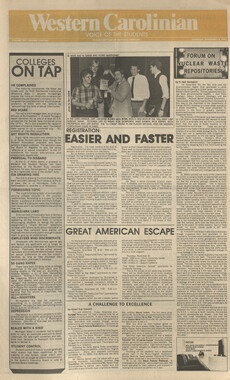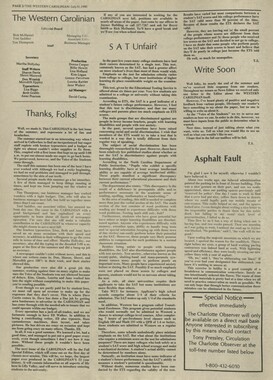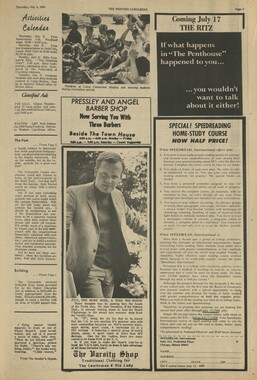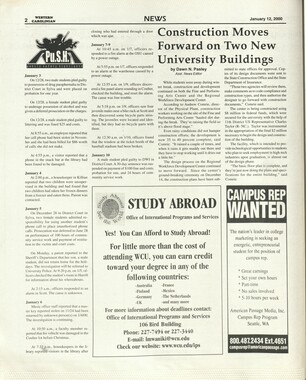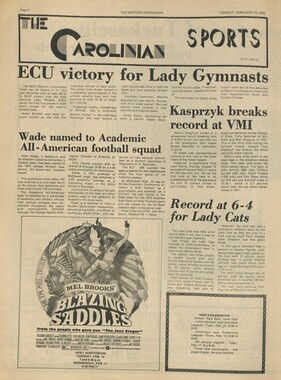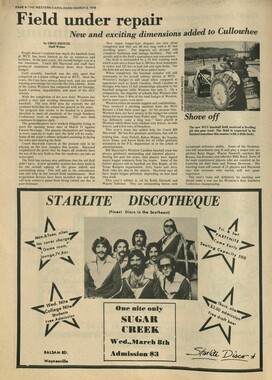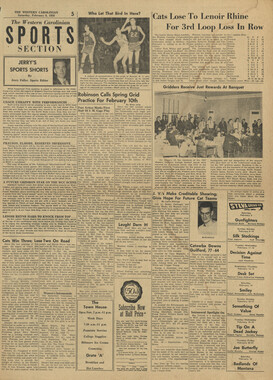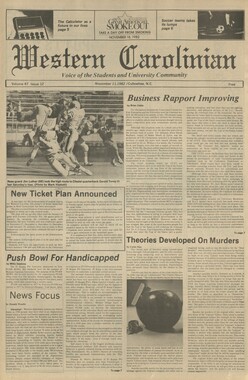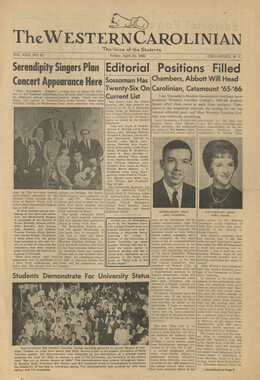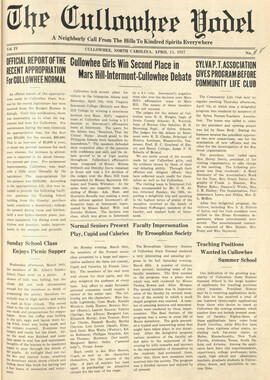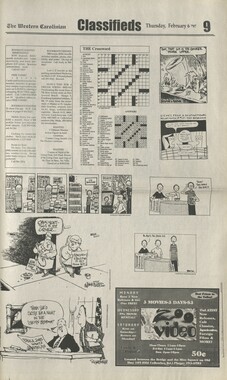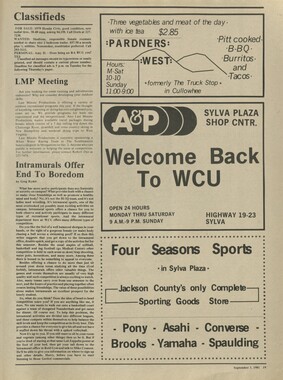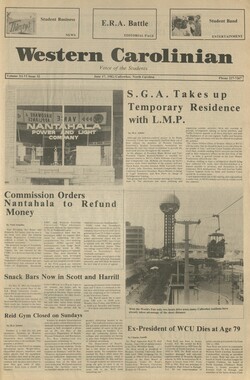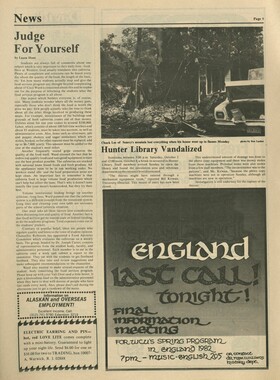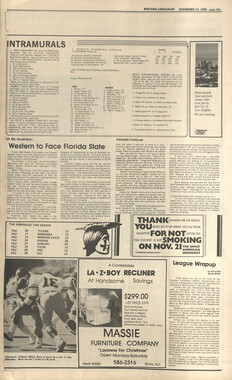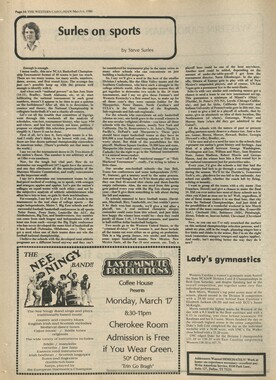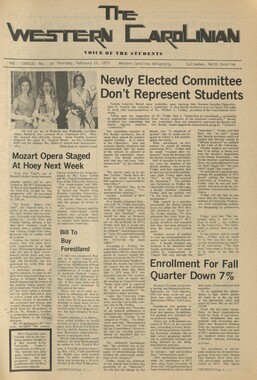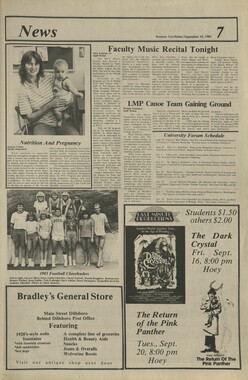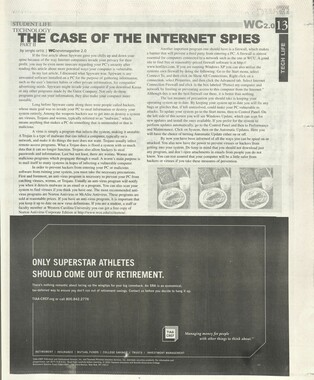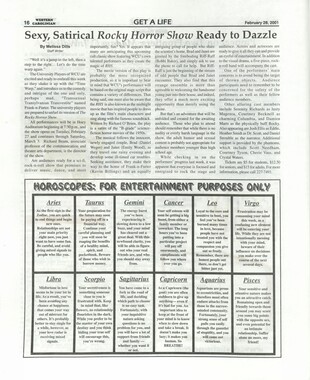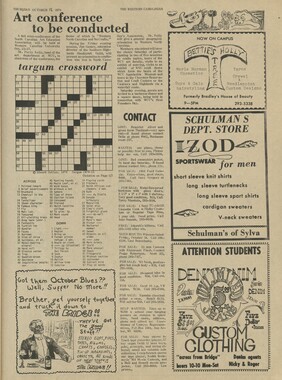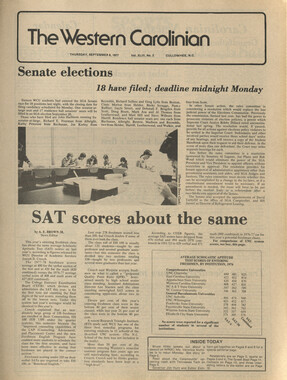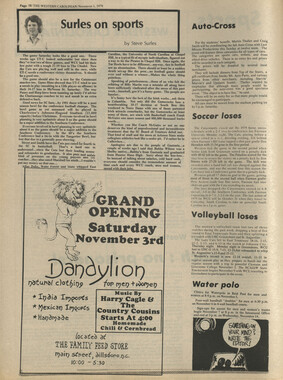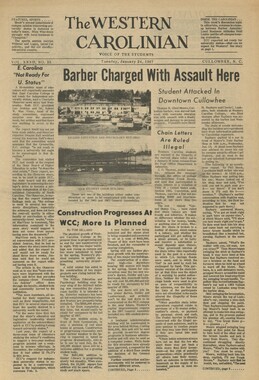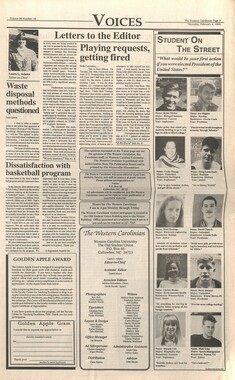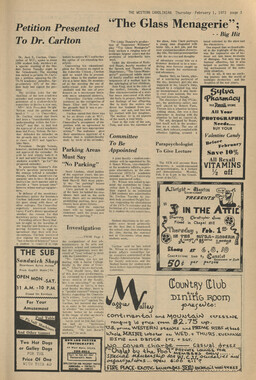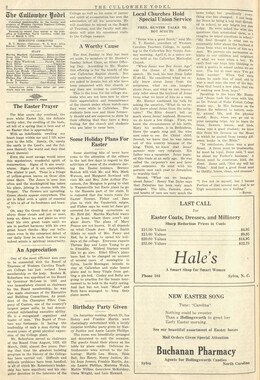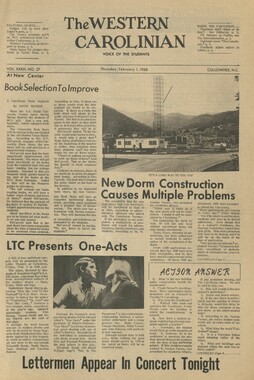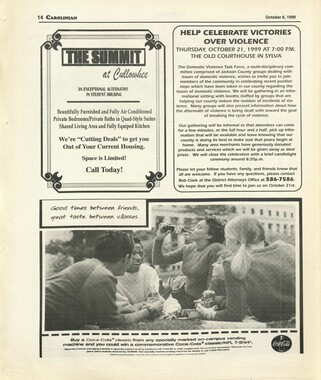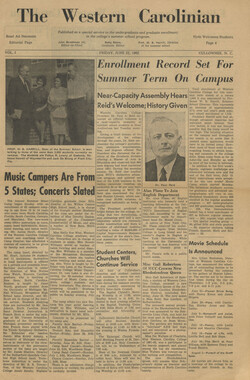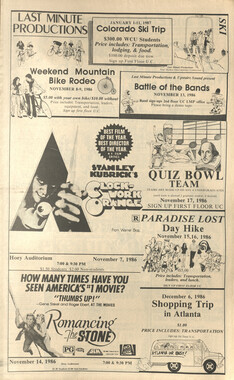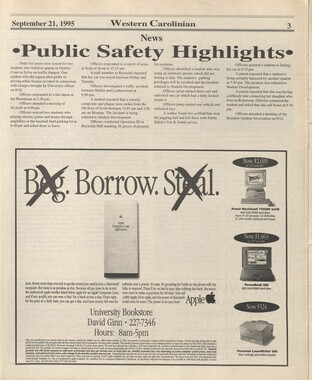Western Carolina University (20)
View all
- Canton Champion Fibre Company (2308)
- Cherokee Traditions (291)
- Civil War in Southern Appalachia (165)
- Craft Revival (1942)
- Great Smoky Mountains - A Park for America (2857)
- Highlights from Western Carolina University (430)
- Horace Kephart (941)
- Journeys Through Jackson (154)
- LGBTQIA+ Archive of Jackson County (85)
- Oral Histories of Western North Carolina (314)
- Picturing Appalachia (6772)
- Stories of Mountain Folk (413)
- Travel Western North Carolina (160)
- Western Carolina University Fine Art Museum Vitreograph Collection (129)
- Western Carolina University Herbarium (92)
- Western Carolina University: Making Memories (708)
- Western Carolina University Publications (2353)
- Western Carolina University Restricted Electronic Theses and Dissertations (146)
- Western North Carolina Regional Maps (71)
- World War II in Southern Appalachia (131)
University of North Carolina Asheville (6)
View all
- Allanstand Cottage Industries (62)
- Appalachian National Park Association (53)
- Bennett, Kelly, 1890-1974 (1388)
- Berry, Walter (76)
- Brasstown Carvers (40)
- Carver, George Washington, 1864?-1943 (26)
- Cathey, Joseph, 1803-1874 (1)
- Champion Fibre Company (233)
- Champion Paper and Fibre Company (297)
- Cherokee Indian Fair Association (16)
- Cherokee Language Program (22)
- Crowe, Amanda (40)
- Edmonston, Thomas Benton, 1842-1907 (7)
- Ensley, A. L. (Abraham Lincoln), 1865-1948 (275)
- Fromer, Irving Rhodes, 1913-1994 (70)
- George Butz (BFS 1907) (46)
- Goodrich, Frances Louisa (120)
- Grant, George Alexander, 1891-1964 (96)
- Heard, Marian Gladys (60)
- Kephart, Calvin, 1883-1969 (15)
- Kephart, Horace, 1862-1931 (313)
- Kephart, Laura, 1862-1954 (39)
- Laney, Gideon Thomas, 1889-1976 (439)
- Masa, George, 1881-1933 (61)
- McElhinney, William Julian, 1896-1953 (44)
- Niggli, Josephina, 1910-1983 (10)
- North Carolina Park Commission (105)
- Osborne, Kezia Stradley (9)
- Owens, Samuel Robert, 1918-1995 (11)
- Penland Weavers and Potters (36)
- Roberts, Vivienne (15)
- Roth, Albert, 1890-1974 (142)
- Schenck, Carl Alwin, 1868-1955 (1)
- Sherrill's Photography Studio (2565)
- Southern Highland Handicraft Guild (127)
- Southern Highlanders, Inc. (71)
- Stalcup, Jesse Bryson (46)
- Stearns, I. K. (213)
- Thompson, James Edward, 1880-1976 (226)
- United States. Indian Arts and Crafts Board (130)
- USFS (683)
- Vance, Zebulon Baird, 1830-1894 (1)
- Weaver, Zebulon, 1872-1948 (58)
- Western Carolina College (230)
- Western Carolina Teachers College (282)
- Western Carolina University (1840)
- Western Carolina University. Mountain Heritage Center (18)
- Whitman, Walt, 1819-1892 (10)
- Wilburn, Hiram Coleman, 1880-1967 (73)
- Williams, Isadora (3)
- Cain, Doreyl Ammons (0)
- Crittenden, Lorraine (0)
- Rhodes, Judy (0)
- Smith, Edward Clark (0)
- Appalachian Region, Southern (2569)
- Asheville (N.C.) (1923)
- Avery County (N.C.) (26)
- Blount County (Tenn.) (169)
- Buncombe County (N.C.) (1672)
- Cherokee County (N.C.) (283)
- Clay County (N.C.) (555)
- Graham County (N.C.) (233)
- Great Smoky Mountains National Park (N.C. and Tenn.) (519)
- Haywood County (N.C.) (3567)
- Henderson County (N.C.) (70)
- Jackson County (N.C.) (4740)
- Knox County (Tenn.) (31)
- Knoxville (Tenn.) (12)
- Lake Santeetlah (N.C.) (10)
- Macon County (N.C.) (420)
- Madison County (N.C.) (215)
- McDowell County (N.C.) (39)
- Mitchell County (N.C.) (132)
- Polk County (N.C.) (35)
- Qualla Boundary (981)
- Rutherford County (N.C.) (76)
- Swain County (N.C.) (2117)
- Transylvania County (N.C.) (270)
- Watauga County (N.C.) (12)
- Waynesville (N.C.) (84)
- Yancey County (N.C.) (72)
- Aerial Photographs (3)
- Aerial Views (60)
- Albums (books) (4)
- Articles (1)
- Artifacts (object Genre) (228)
- Bibliographies (1)
- Biography (general Genre) (2)
- Cards (information Artifacts) (38)
- Clippings (information Artifacts) (191)
- Crafts (art Genres) (622)
- Depictions (visual Works) (21)
- Design Drawings (1)
- Drawings (visual Works) (184)
- Envelopes (73)
- Facsimiles (reproductions) (1)
- Fiction (general Genre) (4)
- Financial Records (12)
- Fliers (printed Matter) (67)
- Glass Plate Negatives (381)
- Guidebooks (2)
- Internegatives (10)
- Interviews (815)
- Land Surveys (102)
- Letters (correspondence) (1013)
- Manuscripts (documents) (618)
- Maps (documents) (177)
- Memorandums (25)
- Minutes (administrative Records) (59)
- Negatives (photographs) (5926)
- Newsletters (1285)
- Newspapers (2)
- Occupation Currency (1)
- Paintings (visual Works) (1)
- Pen And Ink Drawings (1)
- Periodicals (193)
- Personal Narratives (10)
- Photographs (12976)
- Plans (maps) (1)
- Poetry (5)
- Portraits (4535)
- Postcards (329)
- Programs (documents) (151)
- Publications (documents) (2305)
- Questionnaires (65)
- Scrapbooks (282)
- Sheet Music (2)
- Slides (photographs) (402)
- Songs (musical Compositions) (2)
- Sound Recordings (796)
- Specimens (92)
- Speeches (documents) (15)
- Tintypes (photographs) (8)
- Transcripts (322)
- Video Recordings (physical Artifacts) (23)
- Vitreographs (129)
- Text Messages (0)
- A.L. Ensley Collection (275)
- Appalachian Industrial School Records (7)
- Appalachian National Park Association Records (336)
- Axley-Meroney Collection (2)
- Bayard Wootten Photograph Collection (20)
- Bethel Rural Community Organization Collection (7)
- Blumer Collection (5)
- C.W. Slagle Collection (20)
- Canton Area Historical Museum (2110)
- Carlos C. Campbell Collection (373)
- Cataloochee History Project (64)
- Cherokee Studies Collection (4)
- Daisy Dame Photograph Album (5)
- Daniel Boone VI Collection (1)
- Doris Ulmann Photograph Collection (112)
- Elizabeth H. Lasley Collection (1)
- Elizabeth Woolworth Szold Fleharty Collection (4)
- Frank Fry Collection (95)
- George Masa Collection (173)
- Gideon Laney Collection (452)
- Hazel Scarborough Collection (2)
- Hiram C. Wilburn Papers (28)
- Historic Photographs Collection (236)
- Horace Kephart Collection (861)
- Humbard Collection (33)
- Hunter and Weaver Families Collection (1)
- I. D. Blumenthal Collection (4)
- Isadora Williams Collection (4)
- Jesse Bryson Stalcup Collection (47)
- Jim Thompson Collection (224)
- John B. Battle Collection (7)
- John C. Campbell Folk School Records (80)
- John Parris Collection (6)
- Judaculla Rock project (2)
- Kelly Bennett Collection (1407)
- Love Family Papers (11)
- Major Wiley Parris Civil War Letters (3)
- Map Collection (12)
- McFee-Misemer Civil War Letters (34)
- Mountain Heritage Center Collection (4)
- Norburn - Robertson - Thomson Families Collection (44)
- Pauline Hood Collection (7)
- Pre-Guild Collection (2)
- Qualla Arts and Crafts Mutual Collection (12)
- R.A. Romanes Collection (681)
- Rosser H. Taylor Collection (1)
- Samuel Robert Owens Collection (94)
- Sara Madison Collection (144)
- Sherrill Studio Photo Collection (2558)
- Smoky Mountains Hiking Club Collection (616)
- Stories of Mountain Folk - Radio Programs (374)
- The Reporter, Western Carolina University (510)
- Venoy and Elizabeth Reed Collection (16)
- WCU Gender and Sexuality Oral History Project (32)
- WCU Mountain Heritage Center Oral Histories (25)
- WCU Oral History Collection - Mountain People, Mountain Lives (71)
- WCU Students Newspapers Collection (1784)
- Western North Carolina Tomorrow Black Oral History Project (69)
- William Williams Stringfield Collection (2)
- Zebulon Weaver Collection (109)
- African Americans (390)
- Appalachian Trail (35)
- Artisans (521)
- Cherokee art (84)
- Cherokee artists -- North Carolina (10)
- Cherokee language (21)
- Cherokee pottery (101)
- Cherokee women (208)
- Church buildings (170)
- Civilian Conservation Corps (U.S.) (110)
- College student newspapers and periodicals (1876)
- Dams (107)
- Dance (1023)
- Education (222)
- Floods (61)
- Folk music (1015)
- Forced removal, 1813-1903 (2)
- Forest conservation (220)
- Forests and forestry (1184)
- Gender nonconformity (4)
- Great Smoky Mountains National Park (N.C. and Tenn.) (181)
- Hunting (45)
- Landscape photography (25)
- Logging (118)
- Maps (83)
- Mines and mineral resources (8)
- North Carolina -- Maps (18)
- Paper industry (38)
- Postcards (255)
- Pottery (135)
- Railroad trains (71)
- Rural electrification -- North Carolina, Western (3)
- School integration -- Southern States (2)
- Segregation -- North Carolina, Western (5)
- Slavery (5)
- Sports (452)
- Storytelling (243)
- Waterfalls -- Great Smoky Mountains (N.C. and Tenn.) (66)
- Weaving -- Appalachian Region, Southern (280)
- Wood-carving -- Appalachian Region, Southern (328)
- World War, 1939-1945 (173)
Western Carolinian Volume 54 Number 08
Item
Item’s are ‘child’ level descriptions to ‘parent’ objects, (e.g. one page of a whole book).
-
-
Voices The Western Carolinian Page 4 Thursday, October 6, 1988 (We will not have a Voices page for the Homecoming issue on October 20. However, Columns and Letters to the Editor will be accepted for the upcoming October 13.) Martha McAfee Editor Letter To "Trie "Editor. „ Political labeling and name calling: What's the Purpose? Dear Editor, I have read some poorly argued positions before, but Mr. Jones' "Bush: Conservative or Liberal" article in the September 29th issue of your paper was one of the worst to date. It seemed penned in an irrational, totally reactionary manner and was completely unprofessional. Aren't we all sick and tired of the mindless political labeling so characteristic of recent elections?This attitude of name calling and mud slinging has turned America's once honorable system of presidential elections into the laughing stock of the world. Firstof all, just because a member of the right wing does not embrace every aspect of that extreme doesn't make him a "liberal". Adolf Hitler is generally seen as the most extreme right winger of recent history, but because someone like, say, Jesse Helms is not quite as extreme as der Fuhrer, does this make oi' Jesse a "liberal" or, worse yet, a comic? Not by any logical means can you reach the label of "liberal" as applied to George Bush. To even use the terms "conservative" or "liberal" in a political discussion is to invite contradiction, for in these times the meanings of the two words have become entirely misleading. For example, President Reagan has been the most liberal spender on the military of anyone in our history, along with a liberal laissez faire handling of the nation's economic troubles. By contrast, the "liberal" Democratic platform embraces conservative spending on the military (particularly on nuclear systems) and conservationists' efforts to protect our natural resources from the liberal use of public lands by developers. The terms do not serve as informative labels; they are an attempt to trivialize and make convenient one's judgement of another's character, which is a grave mistake when electing the leader of the most powerful nation on earth. It disgusts me, an American, to see my country sink to such depths. It's sad to see the resurgence of McCarthyism in our society. If Mr. Jones is so anti-Socialist, why does he support Bush, who has carried on our nation's policy of being allied to nations such as West Germany, which are Socialist societies? Here again, Mr. Jones contradicts his position. I was offended by the use of the word "subversive" in Mr. Jones' description of the A.C.L.U. and Americans for Democratic Action. Subversive to what? The A.C.L.U. 's purpose is to uphold the constitutional rights of its clients (which, I might add, has included everyone from the Socialist Worker's Party on the left wing to the Klu Klux Klan on the right wing). If subversion means honoring our Constitution, there's millions of dangerous conspirators on the loose and I'm one of them. The most ridiculous statement of all was his "most shocking revelation about Dukakis". I felt like I was reading The National Enquirer at this point (I wonder which 1985 issue Mr. Jones got his "facts" from). The fall of Mainland China was also the fall of Chiang Kai-shek, a totally corrupt and ruthless leader who, though an ally, was a constant embarrassment to our government and a stumbling block to many of our foreign policies at the time. China may have chosen the lesser of two evils in adopting Communism, a move thatwas supported by many rational minded people the world over (not to mention several million Chinese). This isn't to say that Mao wasn't an evil character himself, because he was. Even Nixon, a famous figure of the McCarthy era, showed enthusiasm for the progress the Communist Chinese had made by his policies with them in his administration. Hopefully, no undecided voter will take as facts the many half-truths and fallacies that Mr. Jones crafted into his article. Unfortunately, he speaks the same language as our two candidates - rhetoric. America can do better than this. Enough of the fake labels - let's start judging people by the content of their character and abilities. Take the time and trouble to research our potential leaders, and for heaven's sake don't make an ignorant choice. Whoever is elected, I hope he doesn't pack the Supreme Court with men more in line with Mr. Jones' view of the Constitution. Yours Truly, Micheal Cook The Western Carolinian Western Carolina University Martha McAfee Mary Ellen Fleming Editor Associate Editors News Editor.. .Christine Faris Business Manager Computer Entertainment/People Editor.. .Holly Wheatlcj t Layout Sports Editor. . .Larry Gray Advertising Sales & Graphics Todd Beasley Larry Gray Chris Pullard Melanie Graham Herb Pickard Photographer Distribution Brad Kimzey Johnny Scolt Cartoonist Staff Writers Phil Cheney Typesetters Shields Brewer Fredrick Mason Special Assistants: Sheila Davidson Colin Burch Brian May To the Editor Christine Hamby Tony Fisher Andrea Oakes Kelly Murray Kim Looper Anna Hendricks Curtis Pate To the Business Karen Royal I David Hullo Herb Pickard Manager Mary Whitfield Stephen Jones Edward Watson Carole Trantham Where Has all the Soil Gone? by Cam Weaver Everywhere you look, you can see the effects of soil erosion, small gullies carved into the dirt paths here on campus and everywhere. Soil is a vial component of nature. It keeps plants and grasses alive, and the plants and grasses feed the animals and the world population. The erosion of this soil is a natural process that will always occur, but man has shifted the balance in nature between natural soil formation by the breakdown of organic and rock material and the rate at which the soil is wasted away. Agriculture practices that are more profitable for the farmer are very detrimental to the land. The Yellow River in China is a good example. This river drains 668,000 square kilometers of land and picks up from this land 1.6 billion tons of salt and sand. This amount of soil in the river creates a solution that is 50% by weight of silt, a figure that classifies the river as liquid mud. All erosion forms take away the valuable topsoil that sustains agriculture. The remaining soil does not contain the necessary organic matter. Plants cultivated in this soil do not yeild enough crops and often die. It does not take much to erode the topsoil off the land. On land that has just a one percent slope the rate of erosion is 3 metric tons of soil per year; a five percent slope yields over 87 metric tons per year and on just a fifteen percent slope over 221 metric tons of soil are eroded each year. The topsoil is very thin; five tons of topsoil covering one acre is as thin as a dime. Crop yields are effected greatly by the loss of topsoil. In the Midwest Corn Belt, 3-6 bushels of corn are sacrificed for every inch of topsoil lost. Sediment carried away by water is the greatest source of pollution in this country. It smothers wildlife in the rivers and lakes and increases costs for water treatment. Three billion metric tons of sediment were deposited by water and the costs to society of this reached over $6.1 billion. Man has caused soil erosion to become a major problem of society. Hopefully, through better management of agriculture and regulations on environment use, the detrimental effects of soil erosion can be reduced. "The Last Temptation of Christ": A Controversial Issue For Those Who Have Not Seen It by Curtis Pate Since before it was released there has been a lot of furor over the movie "The Last Temptation of Christ." It's been protested heavily, attacked as blasphemous, and in a lot of places you can't even sec it thanks to the efforts of local religious leaders. Included in this is our own local movie house, the Quinn theater in Sylva. Back in August when the movie first came out Quinn ran an ad saying that it would not be showing the movie, which I'm sure came as no surprise to anyone. What was a surprise to me when the movie actually made it to Ashevilie. So last week I decided I'd go and see what all the noise was about. I'll admit right off that the main reason I wanted to see the movie was that I was angry. I have no use for censorship in any form, and when it happens right around me I feel like I have to do something about it, even if all I do is support the material in question with my hard-earned bucks. I'm not religious so I figured even if it was as bad as tht opponents of the film were saying it wouldn't offend me loo much. What I found out when I got there was a lot like what I thought, the movie was not one-tenth as bad as it was made out to be. What I wasn't prepared for was that it was one of the best movies I've seen in a long time. At the beginning of the movie it is clearly stated that the movie is not based on the gospels; it's based on the book dealing with "the struggle of the flesh and the spirit." To a great extent it's not even about Jesus, it's more about man in general. The major difference between the movie and the Bible is that Jesus, because he was in human form, was subject to the failings of humanity. In the movie he didn't want to be the Messiah; he just wanted to be like everybody else. It reminded me a lot of the story of Jonah, who avoided doing what God wanted him to for as long as he could because he was afraid and fell unworthy. Eventually Jesus accepts his role; he remains unsure of what's expected of him but he trusts God and does as he's told. There are also alterations in some of the other people in the movie. In ihe movie Judas is Jesus' friend who has to be convinced to betray him because it's necessary to save the world. In addition to this, there are some minor changes in other characters, for example Jesus knew Mary Magdalene from childhood and a lot of his torment is that he loves her and wants to lead a normal life with her. Olher than that the changes are hardly noticeable, but there arc a few things that, taken out of context, will probably offend some people, and I believe, form the basis of most of the opposition to the movie. The parts I could tell would offend someone were not very major, but in fairness I must list them. At the beginning of the movie Jesus is working as a carpenter and makes crosses for the Romans to crucify iheir victims on. Why he does this wasn' t al 1 that clear to me, but I think that it was to try and convince God thai he was unworthy so he could be left alone. At any rate this doesn't last very long, Jesus soon stops fighting God and starts trying to find out what it is he is supposed to do. One line quoted in a letter I came across attacking the movie was that Jesus said "Lucifer is inside me." This is terribly outof context. When he said it, he was discussing the temptations he faces with a friend some time before he accepts his faie. He is trying to convince his friend that he is unworthy to serve God because of this and his friend says lhat in the movie it is revealed lhat he is indeed being tempted by the devil on the regular basis. That is the point of the movie, that although he was tempted he was able to overcome his human side and do what God wanted him to. As I said, this movie is less about Jesus than it is about man's struggle with himself, the struggle to overcome his temptations and to realize that the spirit is more important than the flesh. Before I discuss the final thing that would seem offensive to some people, I would like to warn those of you that intend to see the movie that I'm going to give away the ending in this paragraph. It's been talked about so much I don't think it's a terrible disservice, but if you want to see it, I would advise you to skip this part. The final thing, the sequence that has brought on the most criticism, is the last part of ihe movie. As Jesus is being crucified, an angel comes to him. She takes him off the cross and tells him lhat his work is done. He is not the Messiah, and he can go on and lead a normal life as he always wanted to do. He marries Mary Magdalene and when she dies he marries Lazarus' sister. He raises a family and grows old. Just as is about to die, Judas returns and tells him that he has failed in his mission. He was meant to die on the cross for all humanity and instead he has done this. The angel, who has stayed with him throughout his life, is revealed to be Satan. This is the last temptation of the movie's tide, the temptation to reject his destiny and lead the life of a man. Jesus realizes what has happened and returns to the cross, to die willingly and save the world. This is where the much-publicized scenes of Jesus having sex are found, and they are far from the purpose of the movie as some critics claim. Indeed, for an R-rated movie they are nearly non-existent. And once it is understood that the entire thing is just a vision of what his life would have been like had he yielded to the temptation, it doesn't seem offensive to me. I must admit lhat I do not understand the basis mentality lhat seeks to censor offensive material. There are a lot of things I find offensive and would rather not hear or see, but my usual reaction to this is to avoid hearing and seeing them. If others want to go and see them, that's their business and I sec no sense in interfering with their right to choose. However, there are some who are not happy unless there is nothing in ihe world except what they personally approve of. For some slrange reason, it always seems to be the same people, and they're usually somewhere way out in right field. To men like Jerry Falwell, Donald Wildmon and many others, anything lhat doesn't fit in with their narrow view of the world is evil and must be destroyed. I do not mean to say that protesting against this movie is wrong, this is also a part of free speech. If you don't like the movie speak out, protest, advise people not to see it. But don't come messing around with my freedom of choice. If I wanttogo and see something you don't like it's one thing to tell me why you think I shouldn't. It'squiteanoihertofixitsothatlcan't,which is what they have tried lo do and have largely succeeded in doing. The thing that gets me the most is that most of these people haven'tcven seen the movie. In fact I don't know if any of them have, I saw Jerry Falwell refuse an of er from Tom Braden of "Crossfire" to pay for Falwell s ticket if he would only go and give the movie a chance. Pat Buchanan wrote an editorial in which he slated that he hadn't seen the movie and didn't need to to know it was bad. I've never seen such pathological closedmindedncss before in my life, even from these guys and you 11 never convince me that anything that mmdless is a good thing. I'm not tryi Q ^ bus,nessforScorseseorforUniversals;udL,butIhave seen die movie and I would advise anyone who asked Tl^/, 1° "I ^k Y°U may or maV "ot like it, but lt?f tf0Uble t0 gel ^ facts a"° make an intelligent judgement for yourself.
Object
Object’s are ‘parent’ level descriptions to ‘children’ items, (e.g. a book with pages).
-
The Western Carolinian is Western Carolina University’s student-run newspaper. The paper was published as the Cullowhee Yodel from 1924 to 1931 before changing its name to The Western Carolinian in 1933.
-
